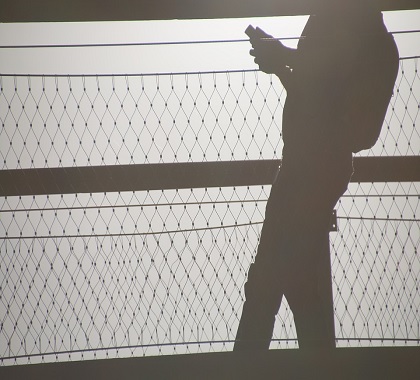Whether the Fourth Amendment to the U.S. Constitution permits law enforcement agencies to obtain cell-site location information (CSLI) from mobile phone companies without a judge’s permission will be determined by the U.S. Supreme Court (SCOTUS).
Oral arguments in Carpenter v. United States began on November 29, 2017.
CSLI is a log of a mobile phone’s connections to mobile phone towers. It can be used to track an individual’s current or past movements.
Lawyers representing federal law enforcement agencies claim the government is not required to obtain a search warrant before requesting CSLI logs from mobile phone providers.
Constitution and Cyberspace
John Malcolm, vice president of the Institute for Constitutional Government at The Heritage Foundation, says the case is about applying the Constitution to modern technologies.
“The Supreme Court is clearly struggling with how the Fourth Amendment might adjust in the digital age,” Malcolm said. “The Court is dealing with laws that were passed in the time of older technologies, and is deciding whether or not those doctrines still suit today’s digital age.”
In similar cases in the past, the Court has chosen to protect individuals’ rights instead of increasing the government’s power, Malcolm says.
“The Court clearly has been changing its views on new technologies, and the government doesn’t have a good recent track record in cases before the Supreme Court involving Fourth Amendment challenges about those new technologies,” Malcolm said.
‘Get a Warrant’
Malcolm says there’s a trend in SCOTUS’ rulings on digital privacy issues.
“It used to be that you could seize anything on somebody’s person and search it as a search incident to arrest,” Malcolm said. “The Supreme Court rejected that and said, ‘Nope, today’s cell phones are sufficiently personal.'”
In 2014, SCOTUS ruled on two cases, Riley v. California and U.S. v. Wurie, involving mobile phones seized from individuals during arrests. Addressing both cases in a single, unanimous opinion, Chief Justice John Roberts wrote, “Our answer to the question of what police must do before searching a cell phone seized incident to an arrest is accordingly simple—get a warrant.”
The Court must now decide whether to apply that reasoning to cell phone location data, Malcom says.
“The question is whether or not the Supreme Court is going to continue down that path, with respect to geo-location information, and say that ‘a subpoena is not good enough; this contains so much personal information in order to track your movements that you need a warrant in order to get it,'” Malcolm said.
A Question of Balance
Marc Blitz, a professor at Oklahoma City University’s School of Law, says the case hinges on defining a reasonable search.
“It’s the protection against unreasonable searches that’s at issue, and how to understand that protection, given really significant technological advances with implications for privacy,” Blitz said.
Limiting the government’s power to snoop strengthens individual freedom, Blitz says.
“A free society requires a certain level of privacy,” Blitz said. “We rely on the law to provide that protection. What’s at stake here is that somebody has to be up to the difficult task of drawing a line that lets the police get the information they need, without letting government overrun privacy safeguards.”




